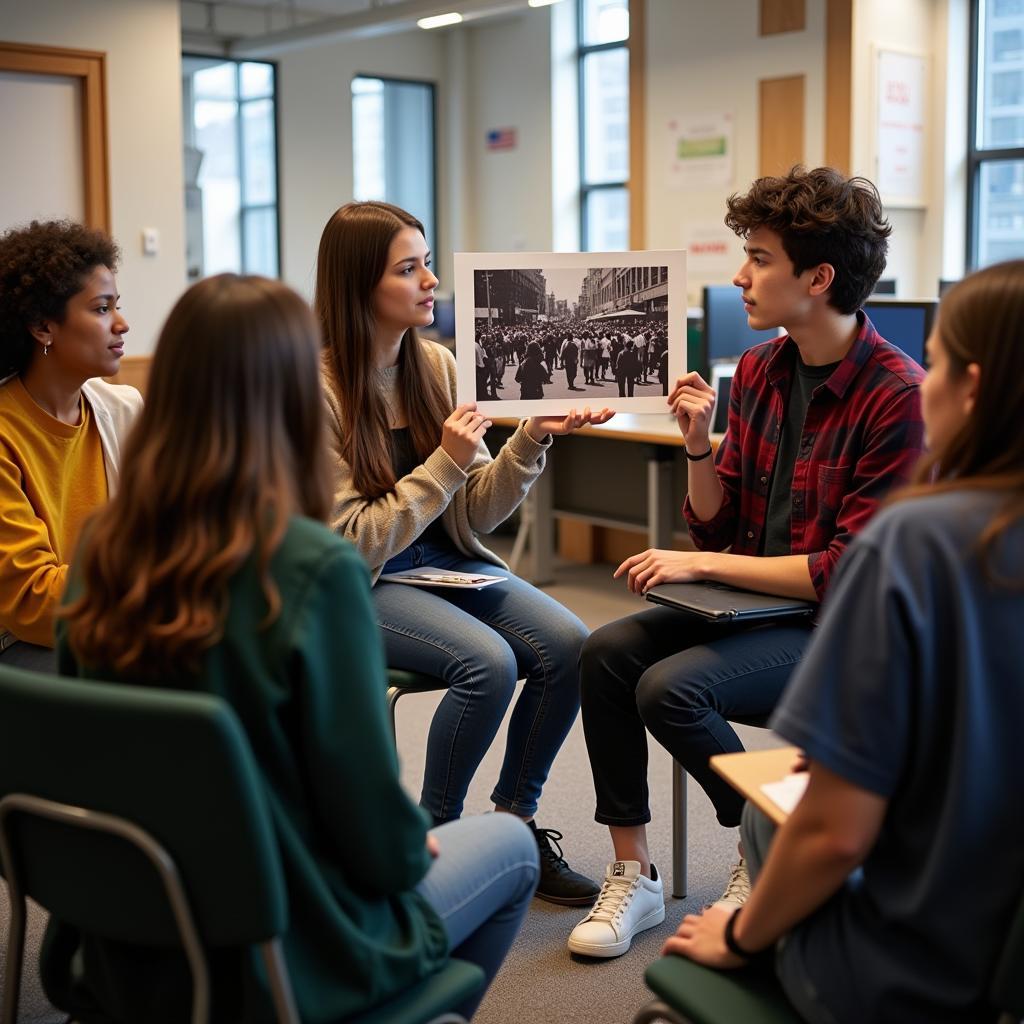Unpacking African American History in High School
African American History Class High School: a crucial subject that explores the rich, complex, and often untold stories of African Americans. This course delves into the struggles and triumphs, the contributions and legacies, shaping not only American history but also global narratives. From the transatlantic slave trade to the Civil Rights Movement and beyond, this class provides students with a deeper understanding of identity, resilience, and the ongoing fight for equality.
The Importance of African American History Class
Why is this subject so vital in a high school curriculum? African American history isn’t just about the past; it’s about understanding the present and shaping the future. It allows students to grapple with difficult truths about systemic racism, oppression, and the fight for social justice, fostering empathy and critical thinking skills. Studying the resilience, creativity, and intellectual contributions of African Americans enriches our understanding of American culture, politics, and society as a whole. This knowledge empowers students to become informed citizens who can actively participate in creating a more just and equitable world.
Key Topics Covered in an African American History Class
A comprehensive African American history class covers a wide range of topics, ensuring a holistic understanding of the African American experience. These may include:
- The Transatlantic Slave Trade: Its origins, impact, and lasting legacy.
- Slavery in the United States: Examining the brutal realities of enslaved life, resistance, and the abolitionist movement.
- Reconstruction: Exploring the promises and failures of this period and its impact on race relations in America.
- The Jim Crow Era: Understanding the system of segregation and its devastating consequences.
- The Civil Rights Movement: Studying the key figures, events, and strategies of this transformative period.
- The Black Power Movement: Exploring its aims, ideologies, and impact on African American identity and activism.
- Contemporary Issues: Discussing ongoing struggles for racial justice, including police brutality, mass incarceration, and economic inequality.
Exploring the African American Experience Through Literature
African American literature plays a crucial role in understanding the multifaceted experiences of African Americans. Analyzing works by authors like Toni Morrison, Langston Hughes, and Frederick Douglass provides students with invaluable insights into the complexities of identity, racism, and the pursuit of freedom. african american literature blog offers a rich resource for exploring this topic further. What are the challenges faced by young African Americans navigating the complexities of identity in today’s society?
The Role of Education in Empowering African American Youth
Education has always been a powerful tool for empowerment within the African American community. From the establishment of historically black colleges and universities to the fight for equal access to quality education, the pursuit of knowledge has been central to the struggle for liberation. african american private schools provides a glimpse into the historical context of education for African Americans. What role does education play in bridging the achievement gap and promoting social mobility for African American students?
The Civil Rights Movement: A Turning Point in American History
The Civil Rights Movement was a pivotal moment in American history, marked by courageous acts of resistance against racial segregation and discrimination. african american civil rights offers an in-depth look at this era. How did the Civil Rights Movement reshape the American political and social landscape, and what are its continuing implications today?
 Students participating in a lively discussion about the Civil Rights Movement.
Students participating in a lively discussion about the Civil Rights Movement.
“Understanding African American history is essential to understanding American history. It’s about recognizing the contributions, struggles, and resilience of a people who have shaped the nation in profound ways.” – Dr. Anika Johnson, Professor of African American Studies.
“Studying African American history isn’t just about learning facts; it’s about developing empathy, critical thinking skills, and a commitment to social justice.” – Mr. David Williams, High School History Teacher.
Conclusion
African American history class high school equips students with essential knowledge and critical thinking skills necessary for navigating a complex world. It fosters empathy, encourages dialogue about difficult topics, and empowers students to become agents of change.
FAQ
- What are some key figures in African American history?
- How did the transatlantic slave trade impact Africa and the Americas?
- What were the main goals of the Civil Rights Movement?
- How does African American history continue to shape contemporary issues?
- What resources are available for further exploration of African American history?
- What are some examples of African American literature that provide insights into the black experience?
- How can I find out more about the impact of education on African American communities and african children reading?
Further Questions to Explore
- How does the intersection of race, class, and gender shape the African American experience?
- What is the role of art and music in expressing African American culture and identity? Consider this captivating image of an african boy with blue eyes. What stories does it tell, and what questions does it raise about identity and belonging?
- How can we build a more inclusive and equitable future by learning from the past?
Need help? Contact us 24/7: Phone: +255768904061, Email: [email protected] or visit us at Mbarali DC Mawindi, Kangaga, Tanzania.

